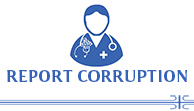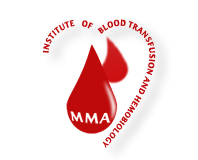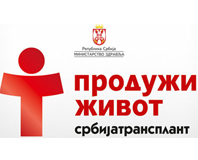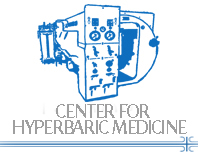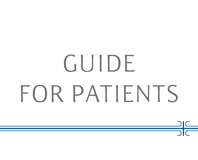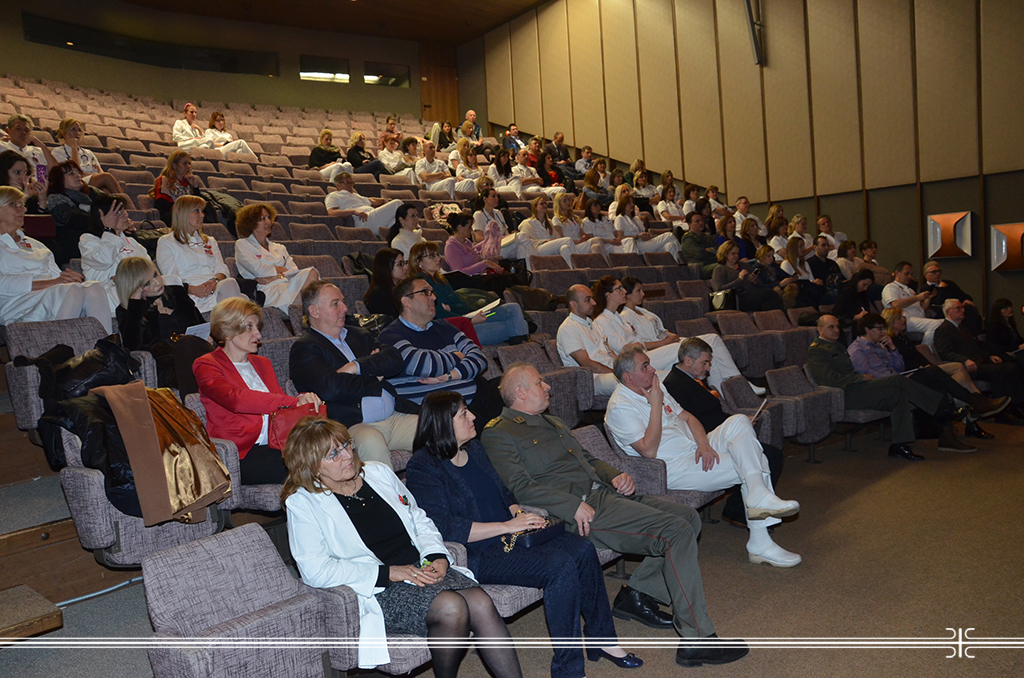
International Symposium on Transplantation
22. 03. 2018
Symposium on factors of importance for the success of liver and kidney transplantation was held at the Military Medical Academy. This international event was organized by the Academy of Medical Sciences of the Serbian Medical Society and the Clinic of Nephrology of the Military Medical Academy. At the symposium, the doctors of the University Clinical Centers from Ljubljana and Zagreb, Clinical Center Serbia and Vojvodina, as well as the Military Medical Academy, shared the latest experiences on the treatment of transplanted patients.

Participants were greeted by the Deputy Head of MMA Colonel Prof. Dr. Dragan Dincic. He emphasized that the expert meeting was dedicated to the extension of health and life quality or, as he said, "to a new life creation".
- Your efforts to gain new theoretical and practical knowledge, to prolong the duration of graft and extend the patient’s life expectancy, represent your imperative, represent the victory of life, and that is, you will agree, a great victory - said Prof. Dr. Dincic.
He stressed that he admired all those who deal with organ transplantation, all their efforts to give the patient a new chance or happiness, knowing the fact that, "there is no longer a dialysis."
The Deputy Head of the Military Medical Academy welcomed the participants of the Congress, and especially Prof. Dr. Nikolina Basic-Jukic from the Clinical and Hospital Center Zagreb and Prof. Dr. Miho Arnola from the University Clinical Center in Ljubljana, who have extensive experience in the field of transplantation in their countries.
Academician Pavle Milenkovic, the president of the Academy of Medical Sciences of the Serbian Medical Society, also welcomed the participants of the Symposium, who reminded on the long and fruitful cooperation of the Serbian Medical Association with the MMA over the years.

- Today's meeting is dedicated to various problems related to organ transplantation. Over time, the number of transplants has increased and certain experiences and problems have been identified. Theoretical knowledge is not enough; the real art is the long running of these patients, people who have acquired a new life. A certain life quality and the struggle with the challenges of some therapeutic procedures is needed - said Academician Milenkovic and pointed out that such meetings should be more often held, since the transplantation became a therapeutic method.
In his introductory address, Colonel Prof. Dr Djoko Maksic, Head of the Clinic for Nephrology, talked about the current survival of renal allograft and measures to improve long-term survival of grafts and patients at the MMA.
He said that, in terms of kidney patients, most countries in Europe are trying to enable for 50% of terminal renal insufficiency patients to live with a functional graft, such as Spain, Croatia and other countries.
 - Of course, we face many problems, as is the case in many branches of medicine, because our goal for these patients is to have a long-lasting, quality life, for the grafts to serve 10-15 years and no to return these patients after 5-10 years to the waiting lists due to the loss of graft and not to die with a functional graft because of the many complications that unfortunately the transplantation causes- said Colonel Prof. Dr. Djoko Maksic, having mentioned cardiovascular problems, infections, malignancy, liver diseases etc.
- Of course, we face many problems, as is the case in many branches of medicine, because our goal for these patients is to have a long-lasting, quality life, for the grafts to serve 10-15 years and no to return these patients after 5-10 years to the waiting lists due to the loss of graft and not to die with a functional graft because of the many complications that unfortunately the transplantation causes- said Colonel Prof. Dr. Djoko Maksic, having mentioned cardiovascular problems, infections, malignancy, liver diseases etc.Since the early eighties, transplants have been done in the former SFRY. The first one was done in Rijeka in 1972 and in Belgrade in 1973 at the Clinical Center of Serbia. The MMA has been continuously performing transplants since January 1996, and 387 kidney and 35 liver transplants have been done so far.
The aim of the Symposium was to point to the factors of importance for long survival of the liver and kidney transplanted patients and grafts. The reason for this meeting was the guidelines of the European Expert Group COMMIT, who made recommendations and a checklist of how patients should be monitored, what should all be done from analyzes and check-ups related to the quality of immunosuppression and all other modifying risk factors involved in patients’ mortality , but also in the possibility to lose that graft.
During 15 lectures, the participants discussed all the important modifying factors, with the idea of making a shift in the management of patients that should result in their quality and long-term survival tomorrow, and what is very important, with the longer function of the transplanted organs.
During 15 lectures, the participants discussed all the important modifying factors, with the idea of making a shift in the management of patients that should result in their quality and long-term survival tomorrow, and what is very important, with the longer function of the transplanted organs.
After lectures, guidelines were prepared in accordance with European recommendations for the further development of transplantation medicine in our country and countries in the region, in order to develop a new strategy for team and multidisciplinary management of transplanted patients and their long-lasting and better survival.

